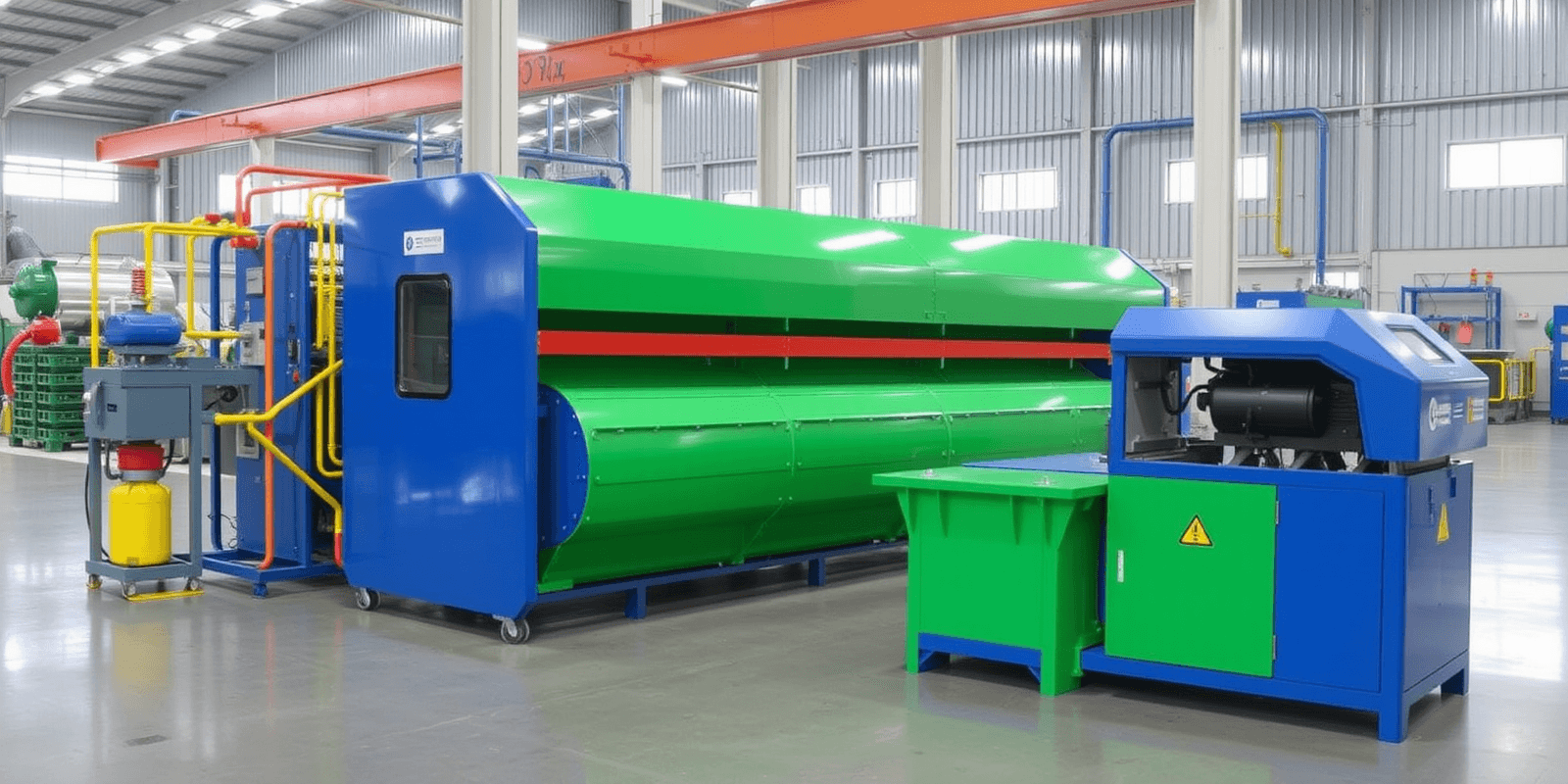Physical Address
304 North Cardinal St.
Dorchester Center, MA 02124
Physical Address
304 North Cardinal St.
Dorchester Center, MA 02124

Plastic waste is a significant environmental challenge that has gained increasing attention in recent years. The global production of plastics has surged over the past few decades, leading to a substantial increase in plastic waste. This has prompted the need for sustainable solutions to manage and recycle plastic waste effectively. Industrial plastic recycling machines play a crucial role in achieving a circular economy by transforming waste into valuable resources. In this article, we will explore the importance of these machines in the context of waste management and the creation of new products.
Industrial plastic recycling machines are advanced systems designed to process large volumes of plastic waste efficiently. These machines can handle various types of plastics, including PET bottles, HDPE containers, and mixed plastic waste. They perform multiple stages of processing, such as sorting, shredding, washing, and melting, to convert waste plastic into high-quality raw materials. By automating these processes, industrial plastic recycling machines significantly reduce labor costs and improve the efficiency of recycling operations.
The journey of plastic waste from collection to the creation of new products involves several key steps, each of which is facilitated by industrial plastic recycling machines:
The first step in the recycling process is collecting plastic waste from various sources, such as households, commercial establishments, and industrial facilities. Once collected, the waste is sorted based on the type of plastic material. This sorting process is essential to ensure that only compatible plastics are processed together. Industrial plastic recycling machines equipped with automated sorting technologies can significantly enhance the efficiency and accuracy of this process.
After sorting, the plastic waste is shredded into smaller pieces. This step not only reduces the size of the waste but also makes it easier to handle and transport. Shredded plastic is then washed to remove contaminants such as dirt, labels, and residual organic matter. Industrial plastic recycling machines are designed to wash the shredded plastic thoroughly, ensuring that the final product is free from impurities. Clean, dry plastic is then ready for further processing.
The next stage involves melting the cleaned plastic to create a homogeneous material. Industrial plastic recycling machines use high-temperature ovens to melt the plastic, which is then extruded through a die to form pellets. These pellets serve as raw materials for manufacturing new plastic products. The quality of the pellets depends on the efficiency of the melting process and the purity of the input material. Modern industrial plastic recycling machines are capable of producing high-quality pellets that meet stringent industry standards.
The final stage in the recycling process involves using the recycled plastic pellets to manufacture new products. This can range from packaging materials and consumer goods to automotive components and construction materials. By incorporating recycled plastics into their production processes, manufacturers can significantly reduce their reliance on virgin plastic materials, thereby minimizing environmental impact. Additionally, using recycled plastics can lead to cost savings and improved brand reputation due to the company’s commitment to sustainability.
Industrial plastic recycling machines play a vital role in achieving a circular economy by facilitating the efficient and effective recycling of plastic waste. These machines enable the conversion of waste into valuable resources, thereby reducing the demand for virgin plastic materials. By promoting the reuse and recycling of plastics, industrial plastic recycling machines contribute to the reduction of greenhouse gas emissions, energy consumption, and landfill waste. Furthermore, they support the development of a sustainable supply chain by providing a consistent source of high-quality recycled plastics.
In addition to their environmental benefits, industrial plastic recycling machines also offer economic advantages. They create job opportunities in the recycling sector and stimulate local economies by supporting the growth of businesses involved in the production and distribution of recycled plastics. Moreover, the use of recycled plastics can lead to cost savings for manufacturers, as recycled materials are often less expensive than virgin plastics.
Industrial plastic recycling machines are essential tools in the transition towards a circular economy. They enable the efficient processing of plastic waste and the creation of new products from recycled materials. By integrating these machines into waste management systems, we can significantly reduce our reliance on virgin plastics, minimize environmental impact, and promote sustainable practices across industries. As the world continues to grapple with the challenges posed by plastic waste, the role of industrial plastic recycling machines in fostering a circular economy cannot be overstated.
European Commission. (2021). Circular Economy Action Plan.
Plastics Europe. (2021). Production of Plastics.
United Nations Environment Programme. (2021). Global Plastics Outlook: Economic Dynamics of the Full Life Cycle of Plastics.